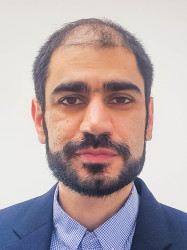Research
Our lab uses wet lab and computational approaches to understand the immune response to cancer in patients and mouse models. We focus on:
1. Cancer antigen immunogenicity [12].
2. The immune microenvironment of cancer, in particular in relationship to mechanisms of immune function [5, 9], dysfunction [2, 6, 10], the T cell receptor landscape [4], cancer neoantigens as drivers of immune failure [1] and evolution of the immune landscape particularly with respect to CD4 T cell plasticity. Collaborators include Lucy Walker, Benny Chain, Teresa Marafioti and Sergio Quezada (UCL), Khalid AbdulJabbar (ICR) and Rafi Ahmed (Emory University).
3. Mechanisms of anti-PD1 action [13] using samples from patients with gestational cancers, lung and renal cancer. One area we're focussed on is how PD1 receptor occupancy affects T cell function.
4. Application of machine learning (computer vision, novel statistical approaches) to study immune activation using routinely collected patient data (in collaboration with Sarah Filippi)
Key publications

1 Ghorani E, Reading JL, Henry JY, et al. The T cell differentiation landscape is shaped by tumour mutations in lung cancer. Nat cancer 2020;1:546–61. doi:10.1038/s43018-020-0066-y
2 Alrasheed N, Lee L, Ghorani E, et al. Marrow-Infiltrating Regulatory T Cells Correlate with the Presence of Dysfunctional CD4 PD-1 Cells and Inferior Survival in Patients with Newly Diagnosed Multiple Myeloma. Clin Cancer Res 2020;26:3443–54. doi:10.1158/1078-0432.CCR-19-1714
3 Śledzińska A, Vila de Mucha M, Bergerhoff K, et al. Regulatory T Cells Restrain Interleukin-2- and Blimp-1-Dependent Acquisition of Cytotoxic Function by CD4 T Cells. Immunity 2020;52:151-166.e6. doi:10.1016/j.immuni.2019.12.007
4 Joshi K, de Massy MR, Ismail M, et al. Spatial heterogeneity of the T cell receptor repertoire reflects the mutational landscape in lung cancer. Nat Med 2019;25:1549–59. doi:10.1038/s41591-019-0592-2
5 Menares E, Gálvez-Cancino F, Cáceres-Morgado P, et al. Tissue-resident memory CD8 T cells amplify anti-tumor immunity by triggering antigen spreading through dendritic cells. Nat Commun 2019;10:4401. doi:10.1038/s41467-019-12319-x
6 Rosenthal R, Cadieux EL, Salgado R, et al. Neoantigen-directed immune escape in lung cancer evolution. Nature 2019;567:479–85. doi:10.1038/s41586-019-1032-7
7 Wong YNS, Joshi K, Khetrapal P, et al. Urine-derived lymphocytes as a non-invasive measure of the bladder tumor immune microenvironment. J Exp Med 2018;215:2748–59. doi:10.1084/jem.20181003
8 Chakravarthy A, Furness A, Joshi K, et al. Pan-cancer deconvolution of tumour composition using DNA methylation. Nat Commun 2018;9:3220. doi:10.1038/s41467-018-05570-1
9 Arce Vargas F, Furness AJS, Litchfield K, et al. Fc Effector Function Contributes to the Activity of Human Anti-CTLA-4 Antibodies. Cancer Cell 2018;33:649-663.e4. doi:10.1016/j.ccell.2018.02.010
10 Lakins MA, Ghorani E, Munir H, et al. Cancer-associated fibroblasts induce antigen-specific deletion of CD8 T Cells to protect tumour cells. Nat Commun 2018;9:948. doi:10.1038/s41467-018-03347-0
11 Ghorani E, Quezada SA. Chromatin regulation and immune escape. Science 2018;359:745–6. doi:10.1126/science.aat0383
12 Ghorani E, Rosenthal R, McGranahan N, et al. Differential binding affinity of mutated peptides for MHC class I is a predictor of survival in advanced lung cancer and melanoma. Ann Oncol Off J Eur Soc Med Oncol 2018;29:271–9. doi:10.1093/annonc/mdx687
13 Ghorani E, Kaur B, Fisher RA, et al. Pembrolizumab is effective for drug-resistant gestational trophoblastic neoplasia. Lancet 2017;390:2343–5. doi:10.1016/S0140-6736(17)32894-5

